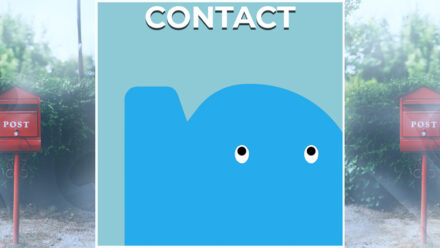
Luc has a bipolar disorder, with depressive and manic periods alternating throughout his life. In this blog, dated 13 June 2015, he writes about his depression, describing his experiences as well as some advice for loved ones on how they can deal with depression.
The change came quite suddenly, about three weeks ago. My mood had already been slowly increasing over the weeks before. But now the dark grey veil of fears and negativity was gone completely, clearing the way for a mild euphoria. My depression had lasted over a year. So how to deal again with such feelings of happiness and other positive emotions?
I have a type 2 bipolar disorder
My depressive episodes vary from severe to mild. They alternate with periods of hypomania (light mania). It’s called bipolar disorder, or manic depression: a mood disorder in which periods of ecstatic joy and times of depression swing from one extreme to the next. The exact cause is not known, but it seems to have something to do with an imbalance between certain important chemicals in the brain.
Depression, to me, is a dark mood filled with negativity and fears, with no hope or end in sight. I experience it as being down in a deep dark hole from which there is no escape. Even though I know from my own personal experiences that this thought is not true and the mood will pass. Dealing with depression is hard. Both for me and people close to me.
The best description of my hypomanic period is a time of increased activity, of acting out of bounds towards others, and in every other thing that gives me joy.
My moral compass gets out of control
These manic episodes also bring along conflicts with other people. They see from up close that I am actually doing much worse than I seem to realise. My behaviour is annoying, while people try to get through to me and express their concern. I heavily protest, and get offended as they doubt my personality. After all, am I not fantastic? This naturally puts a heavy burden on them and our mutual relations. I am simply out of reach.
My hypomanic periods always lead me to physical and mental exhaustion. And eventually into a depressive period of negativity, shame, regret and remorse about what I’ve done to others. This causes anxiety and an extremely negative self-image.
Even when knowing that all these feelings, thoughts and behaviours are large caused by your disorder, you still feel responsible and guilty. And unfortunately, your social circle sometimes does the same: they blame you. It’s like someone has a broken leg and has to cancel your weekly jogging hour: he has no choice. Of course it’s a disappointment, but is it fair to get angry about it?
Sympathy and understanding seem more in place
What keeps me strong during depression, is to always keep going, despite the hopelessness, for as much as you can. I hide behind a mask from the outside world and try to maintain my regular social contacts and sports activities. Why I’m doing this, I don’t know. Perhaps it’s a survival mechanism I am unaware of, because I never truly see much hope. Therefore I have to force myself through my own unwillingness, fears and indifference towards other people and life itself.
I can’t care about my best friend expecting a daughter; it doesn’t touch me
Neither do I feel a thing when I hear about a thousand refugees on a sinking ship. I simply cannot register the emotions. I feel great shame for this indifference and detachment, which only makes me feel more horrible about myself. Most of my friends and family are always there for me. But their love, attention and well-meant advice hardly ever reach me.
Love and affection don’t exist in the mind of a depressed person. That burden is heavy.
You simply cannot imagine how anyone could care about you. After all, you are surely a horrible person. You even get a bit suspicious about any good intention. It is hard to believe it, because it seems so unreal. So far away from the state of mind you are currently in. Yet despite all this, it is important that other people are there for you. One text message in a week asking ‘ hey how are you?’ can be enough to get me through.
What I want to do most of all, is lock myself in, hide in my bed. Just sleep and never wake up. Peace. The shame and guilt about my thoughts are so great that I shy away from social contact and anything that happens outside my house.
To name my current mood for what it is: it seems that I am now lightly hypomanic. My mood stabiliser dosage has been increased and we think this will keep things under control. But the good thing is: I now recognize it for the first time. My family and friends know me and will warn me if things get out of hand. But will I listen this time? I honestly can’t tell. That also comes with the disorder.
Dealing with depression – 10 tips on what you can do for someone who is depressed (and what best to avoid)
- Don’t judge, but listen
Let the depressed person do the talking and ask about their feelings. Depressed people often feel shame about their thoughts. Do not judge these thoughts, but tell them that these dark ideas about themselves, others and life itself are all part of the depression. You are not your thoughts; ideas are simply things you ‘have’ . They are part of the condition. - Be cautious when giving advice
Advice can sometimes be seen as accusations. A depressed person is not stupid and understands fully well that, for example, exercising would be a good idea. The problem is that they often simply can’t do it. Do not expect your advice to be followed. Perhaps more effective than sharing advice, is asking how you could help them. - Show care and affection
Keep inviting your depressed friend to parties and other activities. Even though you know they won’t feel like it, and do not force them to come. Staying in touch means a lot. Simply asking how they are doing in a text message once a week, even if you don’t expect any response or interaction, can make a difference. - Do not expect any enthusiasm
Being depressed means it is impossible to feel involved and you can only react with indifference. Do not judge someone for this, as it is a symptom of the depression. People feel bad enough as it is for feeling this way. - It’s the illness, not their true self
Remember that depression is a disease, which prevents the patient from showing his/her true self. Tell them you understand this, and that the depression makes them see everything much darker than things really are. This doesn’t mean you should convince them that their world view is incorrect, but just try to listen instead. - Guard your own boundaries
Interacting with a depressed person can also be very hard on yourself. It can be exhausting and intense, because a depression leaves little room for displaying sympathy and understanding for others. Do not neglect your own needs, and seek professional help if you cannot bear the responsibility of being the main care worker. - Do things together
A depression makes you want to isolate yourself and be alone. Keep stimulating and inviting them to take up outdoor activities together. Do not force it upon them, but tell them the option is always there. - Seek professional care
Try to motivate people to seek professional assistance. Suggest therapies and medicines that might provide some relief. Again, do not force the decision on them. Any action must be on their own initiative. - Ask how you can help
During depression, it can be hard to take care of daily chores, such as shopping, administration, housekeeping, etc. They are temporarily less competent and often lose the will to do such things. Do not judge this, but offer – without too much force – a helping hand. - Talk about suicidal thoughts.
It is common for depressed people to have suicidal thoughts. Ask them about this and – again – do not judge these thoughts. Rest assured that they are not happy to have them. Tell them they are valuable, that these thoughts come with the depression and will disappear again. Just talking about such thoughts can be helpful in itself.
Luc Vercauteren is an experience expert and shared this blog first on the Dutch website Psychosenet.nl on 13 June 2015. It was translated to English for publication on Psychosisnet.com. Luc’s 10 tips are also presented in the animation ten tips for depression.
Read more about:




Comments: